NAREA
Innovations Volume 31, Number 3 | Fall 2024
Innovations Volume 31, Number 3 | Fall 2024
Couldn't load pickup availability
Welcome to the Fall 2024 issue of Innovations in Early Education: The International Reggio Emilia Exchange. This issue focuses on the reciprocity between theory and practice, a concept that is an essential value of the Reggio Emilia Approach. Carlina Rinaldi suggests,
The meanings that children produce, the explanatory theories that they develop in an attempt to give answers are of the utmost importance. They strongly reveal the ways in which children perceive, question, and interpret reality and their relationships with it.” (Rinaldi, 2006, p. 112)
How can we find meaningful ways for children to develop their own theories and approaches to a problem? How do we enter into research with children by listening, exchanging in dialogue, and reflecting on their meaning? How can we build upon children’s theories?
The authors in this issue have been studying the Reggio Emilia Approach for many years. They include a pedagogista from Reggio Emilia, former Innovations’ authors, past and current Innovations’ consulting editors and NAREA board members, and past and future hosts of exhibitions from Reggio Emilia. These educators have taken this opportunity to reflect on the words of Reggio educators and illustrate the recursive relationship of theory into practice and practice into theory in their own work. They have learned that engaging with theories is an opportunity to connect with others and build understandings together.
We begin this issue with an article from Reggio Emilia, “The Relationship Between Theory and Practice as a ‘Dance of Knowledge,’” by Daniela Lanzi, pedagogista, head of pedagogical coordination, and member of the management staff of the Preschools and Infant-toddler Centers – Istituzione of the Municipality of Reggio Emilia. Through the metaphor of the “dance of knowledge,” Daniela reaffirms that “the question of the relationship between theory and practice has been a common thread in the thoughts, projects, daily life, and education of the municipality of Reggio Emilia’s infant-toddler centers and preschools for over 60 years.”
Next, Karyn Callaghan, former professor, current NAREA board member and Innovations’ consulting editor, reflects on the effect of theories and wonders if children’s ability to generate, communicate, test, and revise theories depends on the “capacity of the adult.”
The following article by Jeanne Goldhaber, emerita faculty member at the University of Vermont, current NAREA board member, and former Innovations’ consulting editor, shares her own personal stories researching with children and educators to find the meanings constructed by the children. She found that “explaining change as a cycle appears to be an idea that . . . children . . . [incorporate] into their explanations.”
In her article, Susan MacKay, co-founder/director of the Center for Playful Inquiry, explores the value of uncertainty in learning. She believes that a “good theory is never stagnant but always growing in response to experience.”
Pam Oken-Wright, pedagogical consultant and author, offers a story from her many years as a teacher-researcher of young children when she learned that the “general course [of the relationship between theory and practice] is toward complexity, deeper understanding, and deep engagement for children and teachers.”
Another memorable experience from many years of working with children is highlighted by Will Parnell, professor of early childhood education at Portland State University, and Lynn Green, executive director of the Helen Gordon Child Development Center, when they found meaning by “thinking with important theories and notions rather than merely reflecting back what [they] see and wonder.”
The relationship between theory and practice in teacher education is offered by Ena Shelley, former dean of the Butler University College of Education. This experience strengthened her “belief and understanding of the reciprocal relationship of students, teachers, and professors as co-learners.”
The final reflection on this topic is from Christie Colunga, early childhood education program director and residential faculty member, and Jennifer Hicks, adjunct faculty, at Paradise Valley Community College. They discuss how a group of teacher educators learned how to listen instinctually to the languages of children.
NAREA staff share reflections of our summer conference, which focused on “Advocating for the 100 Languages as an Educational Right for Children, Families, and Educators.” Then, New Mexico educators on the conference planning team—Gigi Yu, Pam Remstein, Baji Rankin, and Sarah McKinney—offer their reflections on the experience of the conference, including the ateliers, which a local working group designed.
We are pleased to close this issue with a book review by Helen Lyndon, senior research fellow and postgraduate program lead at the Centre for Research in Early Childhood, of The Role of the Pedagogista in Reggio Emilia.
Share
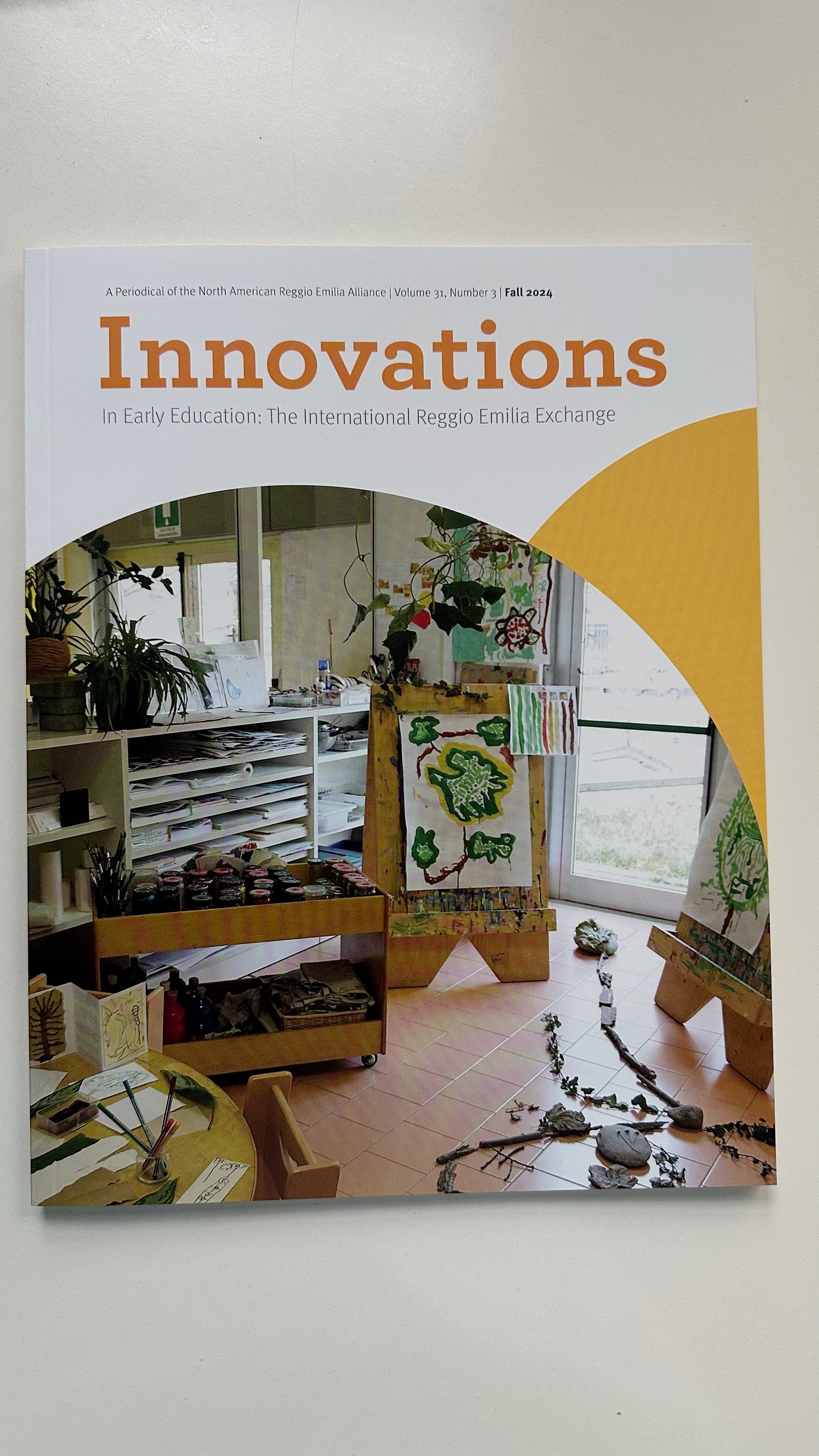
Need Some Guidance?
-
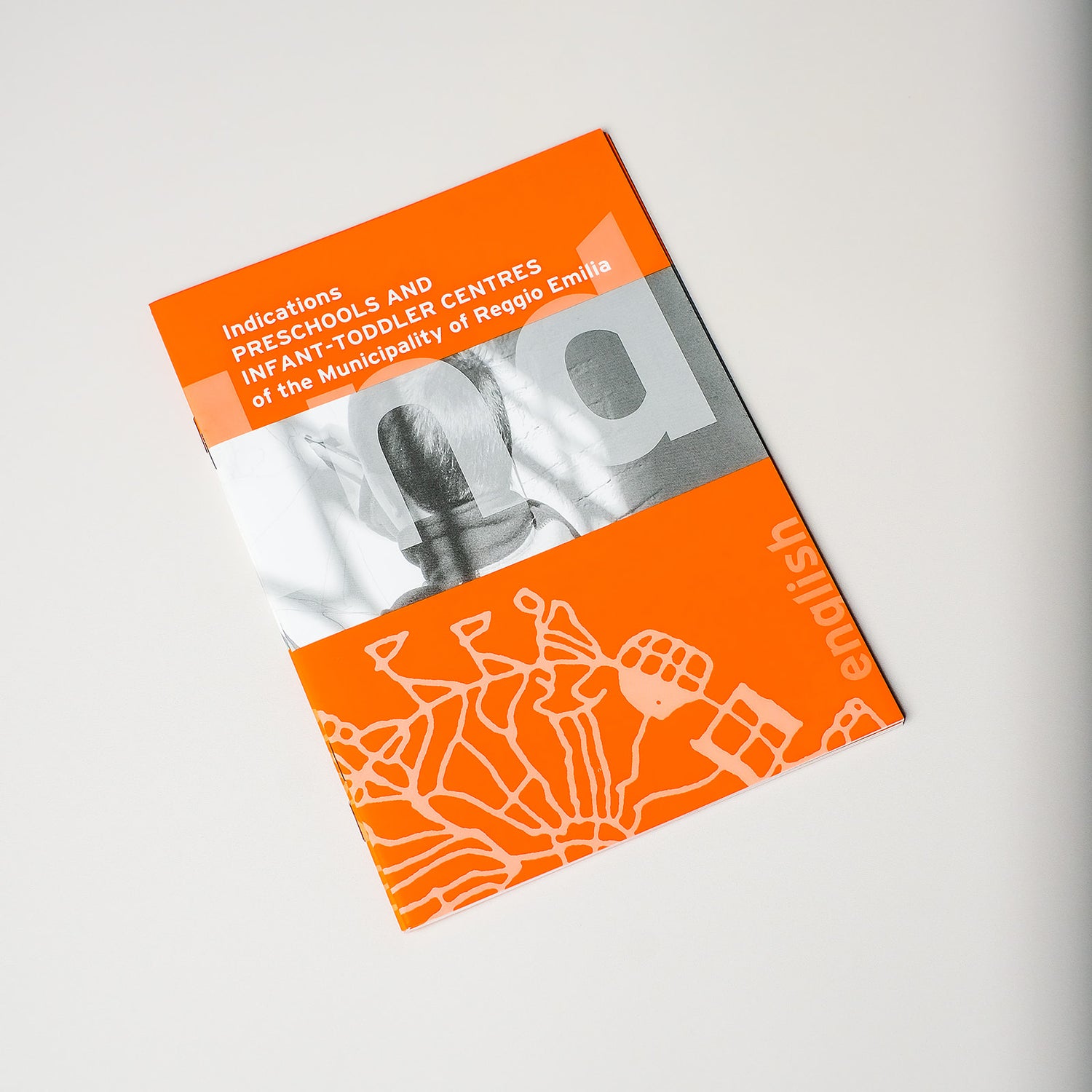
In the Beginning
If you are becoming familiar with the Reggio Emilia Approach, it is...
-
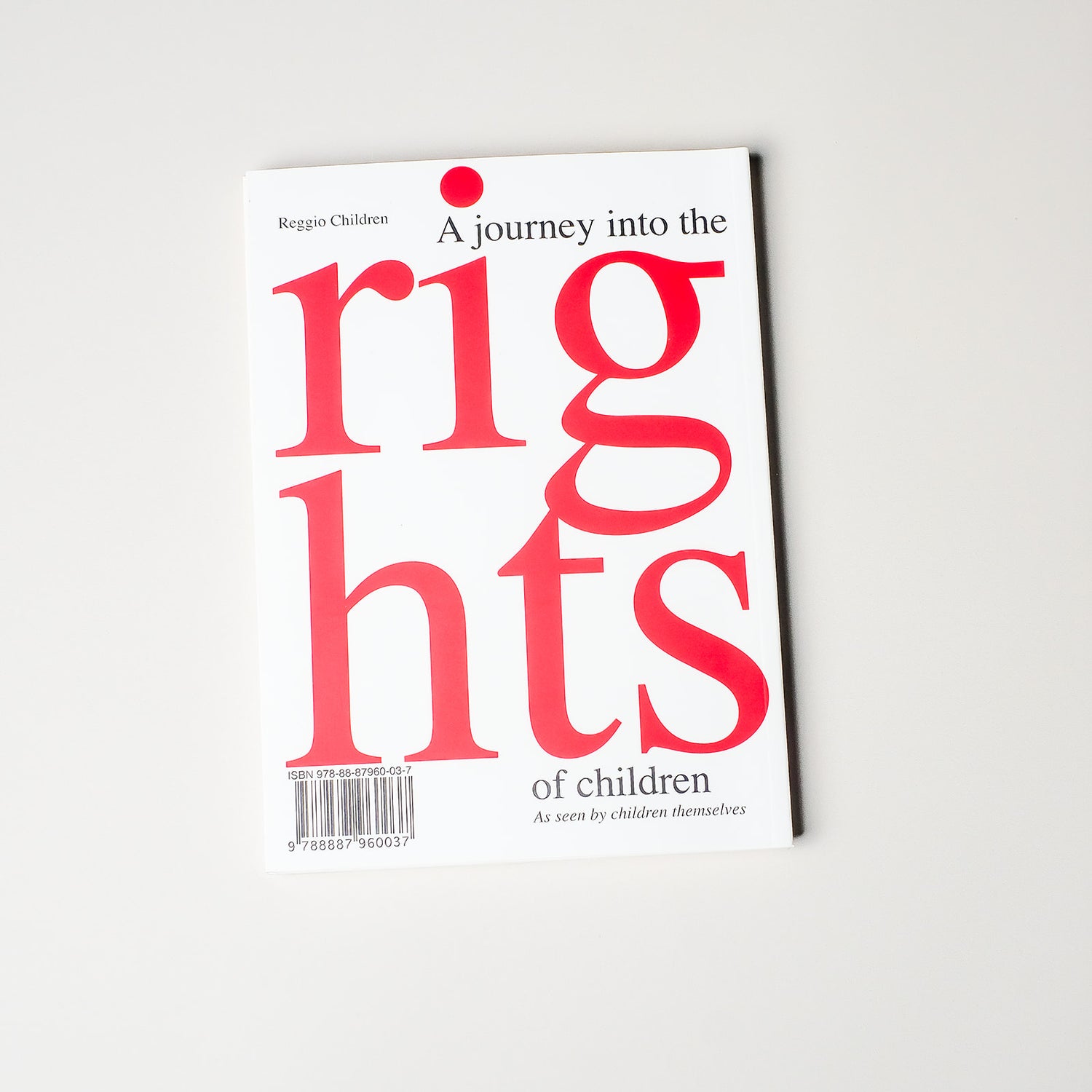
Children's Voices
One of the most captivating competences among teachers, atelieristas, and pedagogistas in...
-
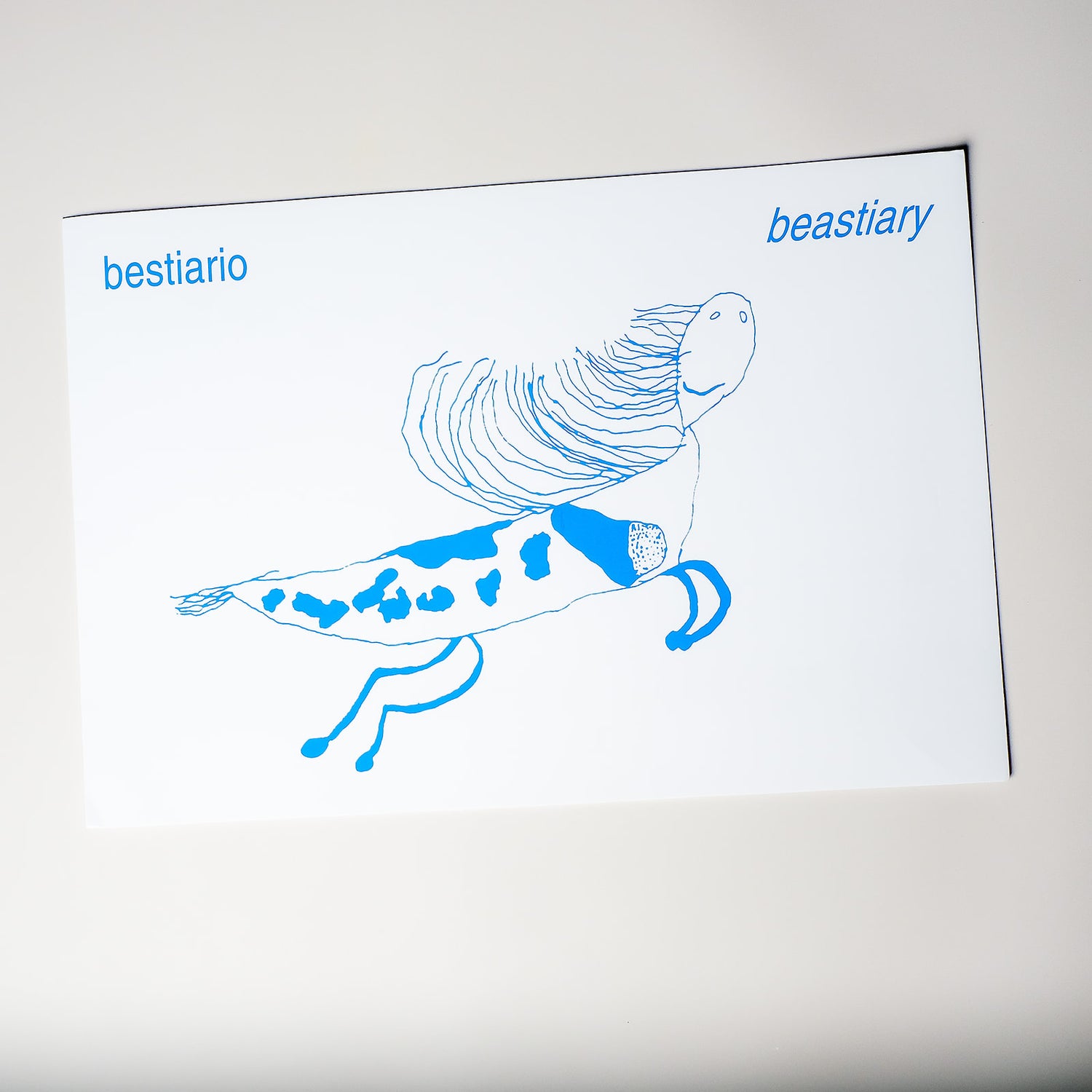
Children's Themed Work Artifacts
Upon first encountering the Reggio Emilia Approach, educators can be perplexed about...
-
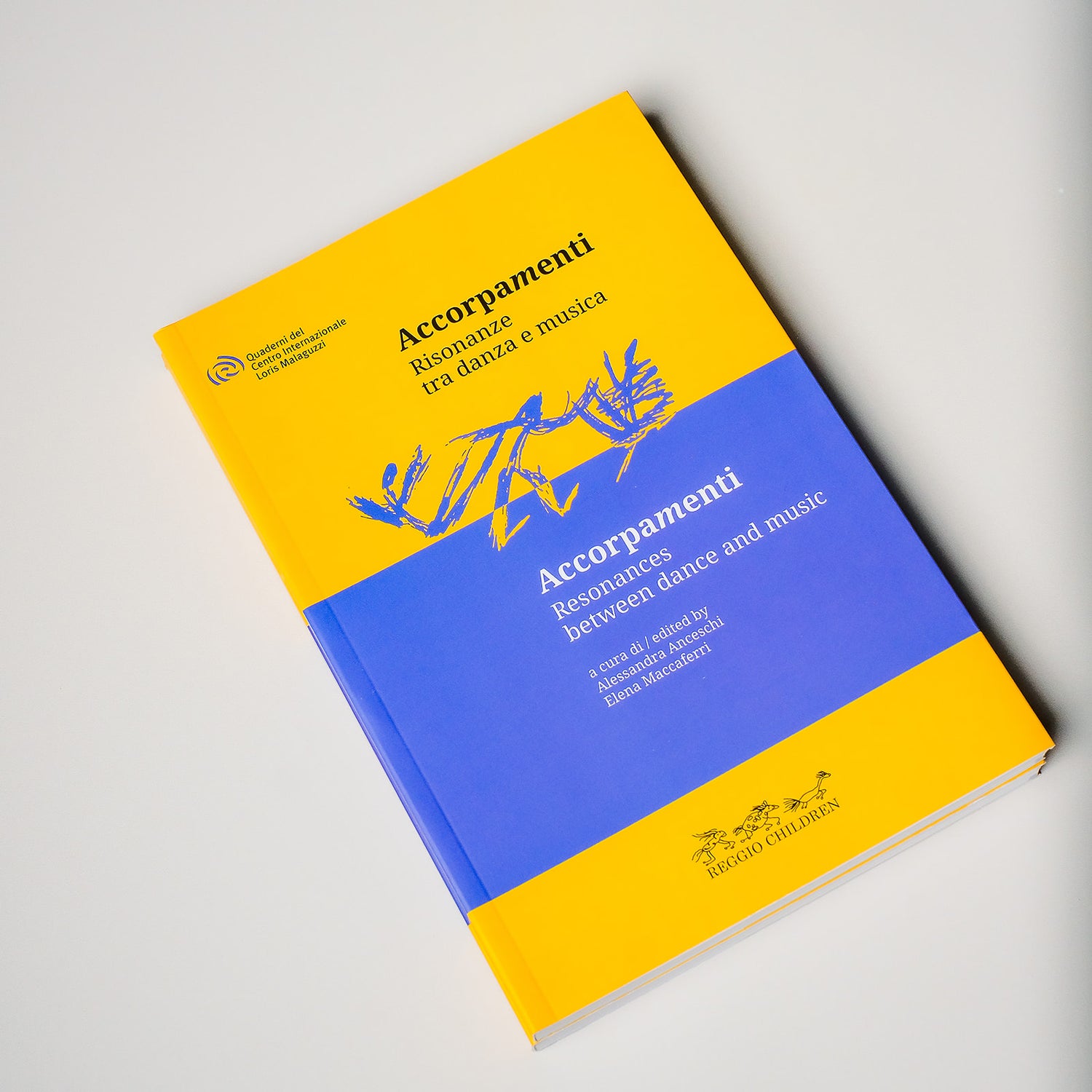
Wide Themes
Wide themes convey the presence of children’s and adult's perspectives within the...
-
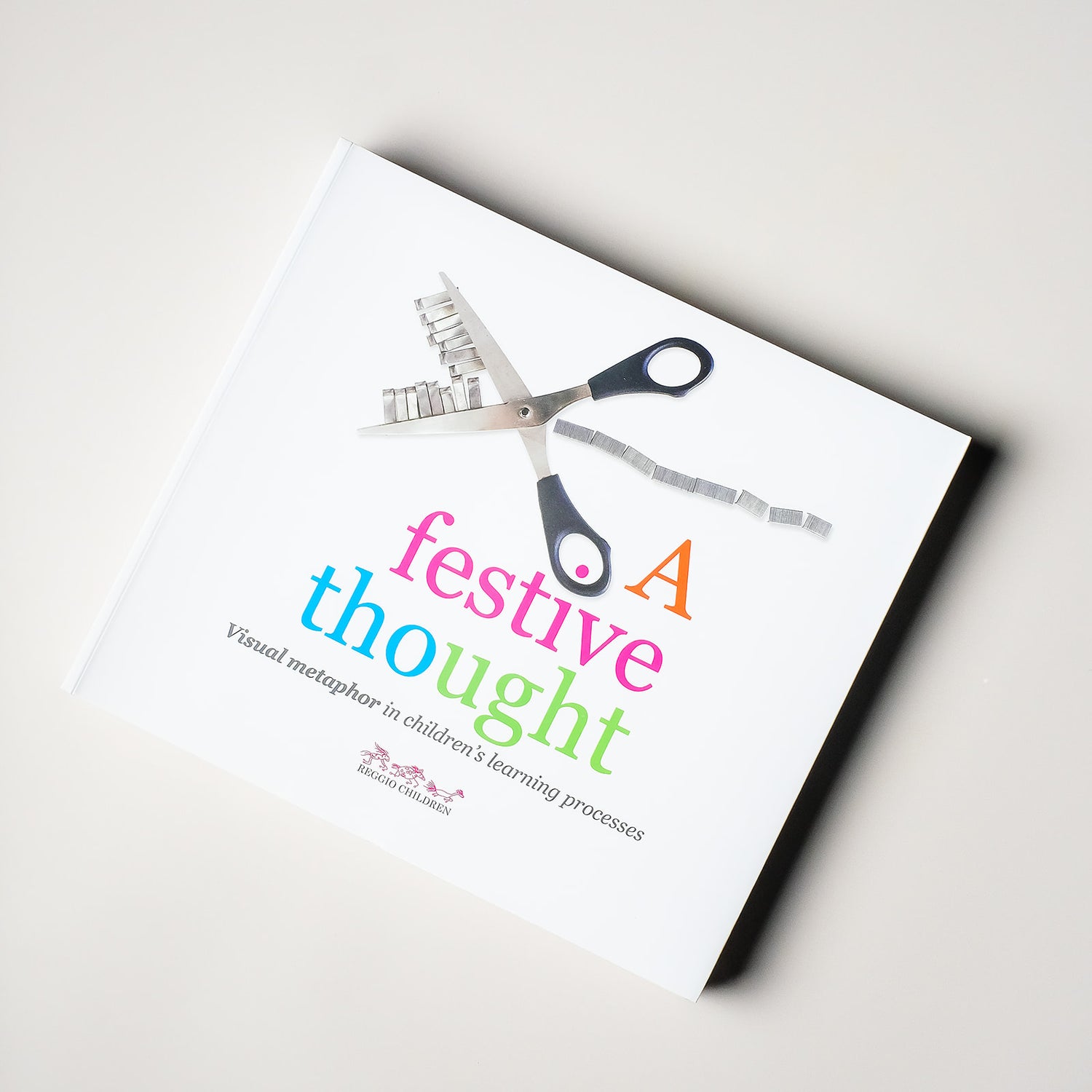
Exhibition Catalogues
From the first exhibition curated in Reggio Emilia to convey to its...
-
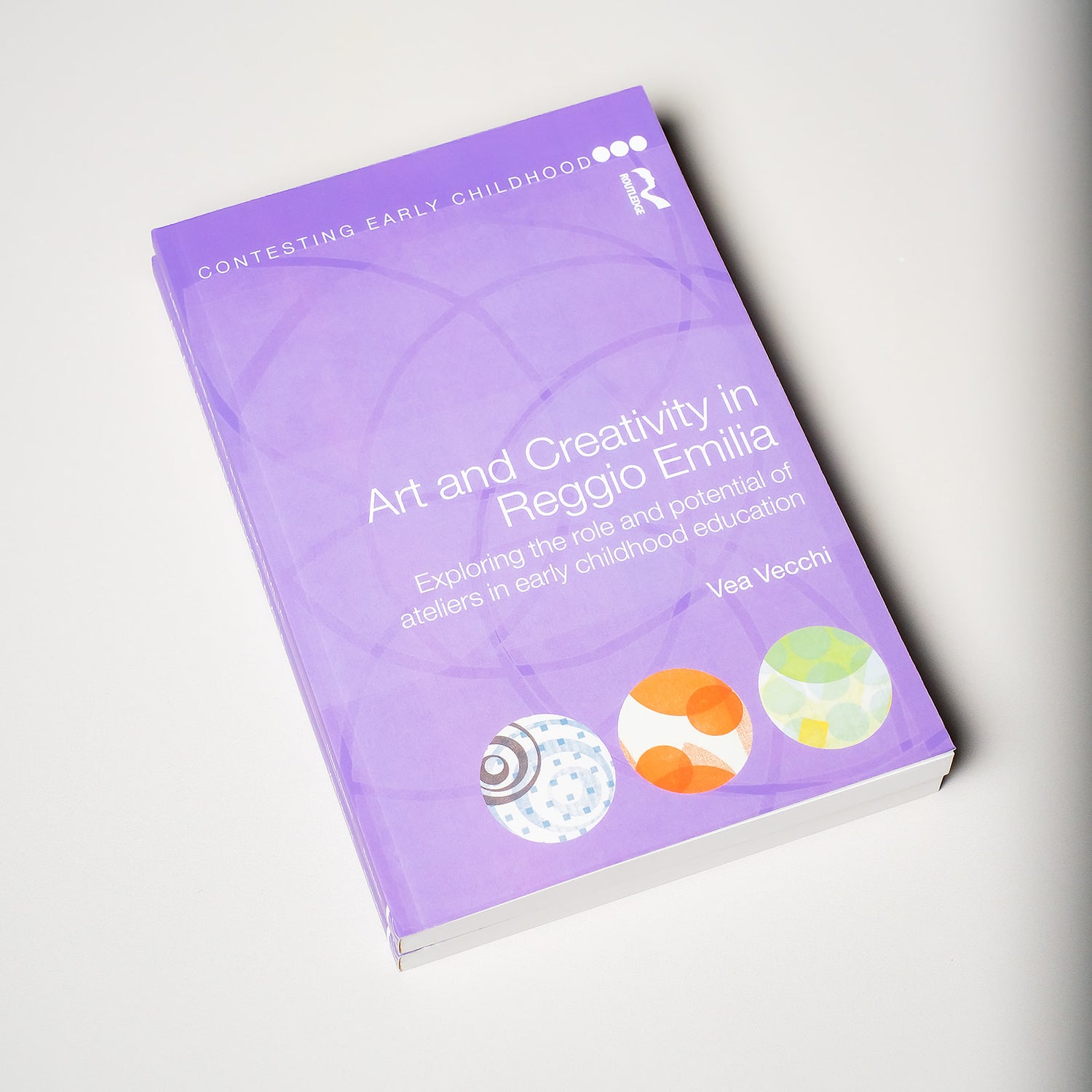
Deep, Essential Resources
For the steady knowledge builders, the leaders, the educators who want to...
-
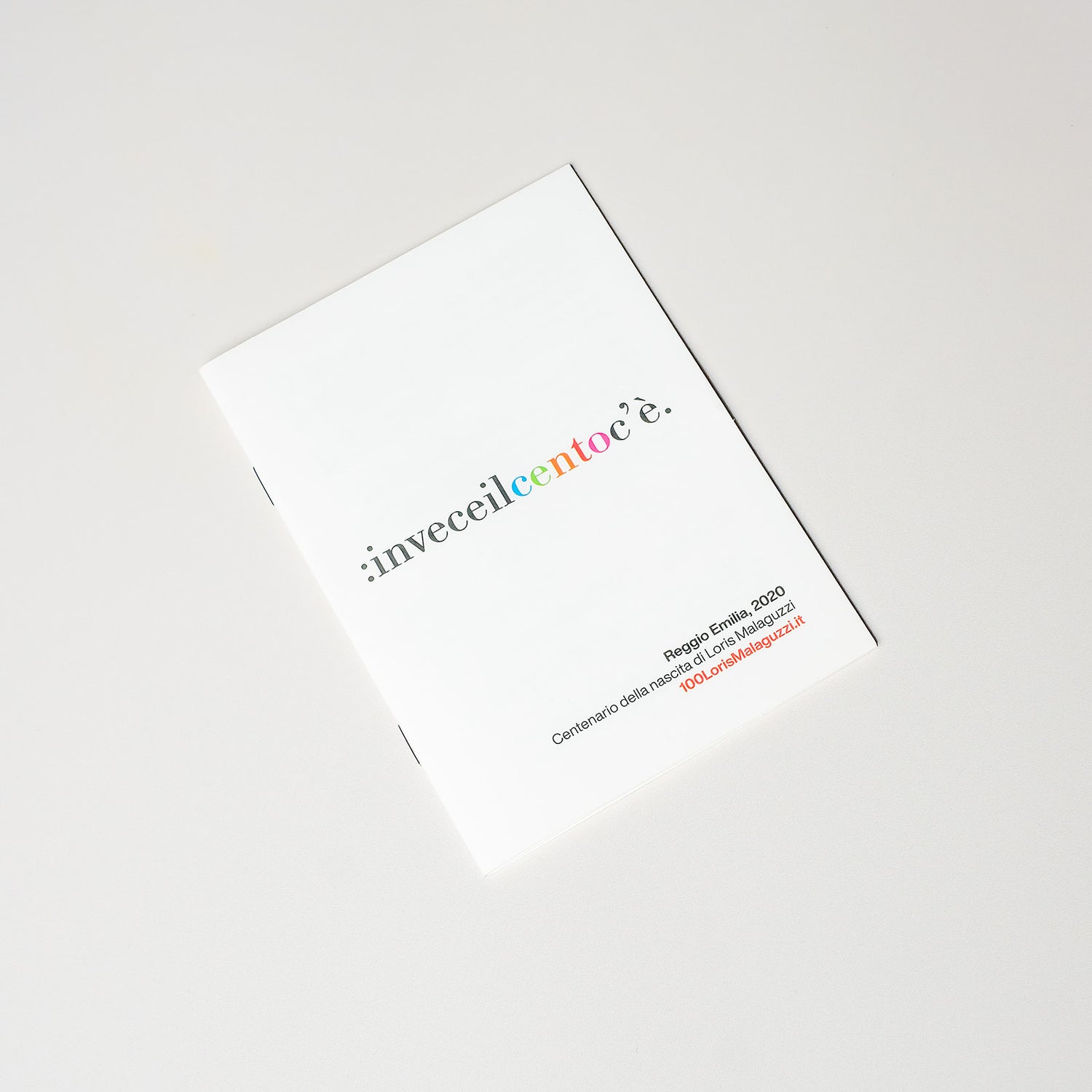
Posters, Gifts, Other
Looking for a small gift for you or a colleague? Check out...
-
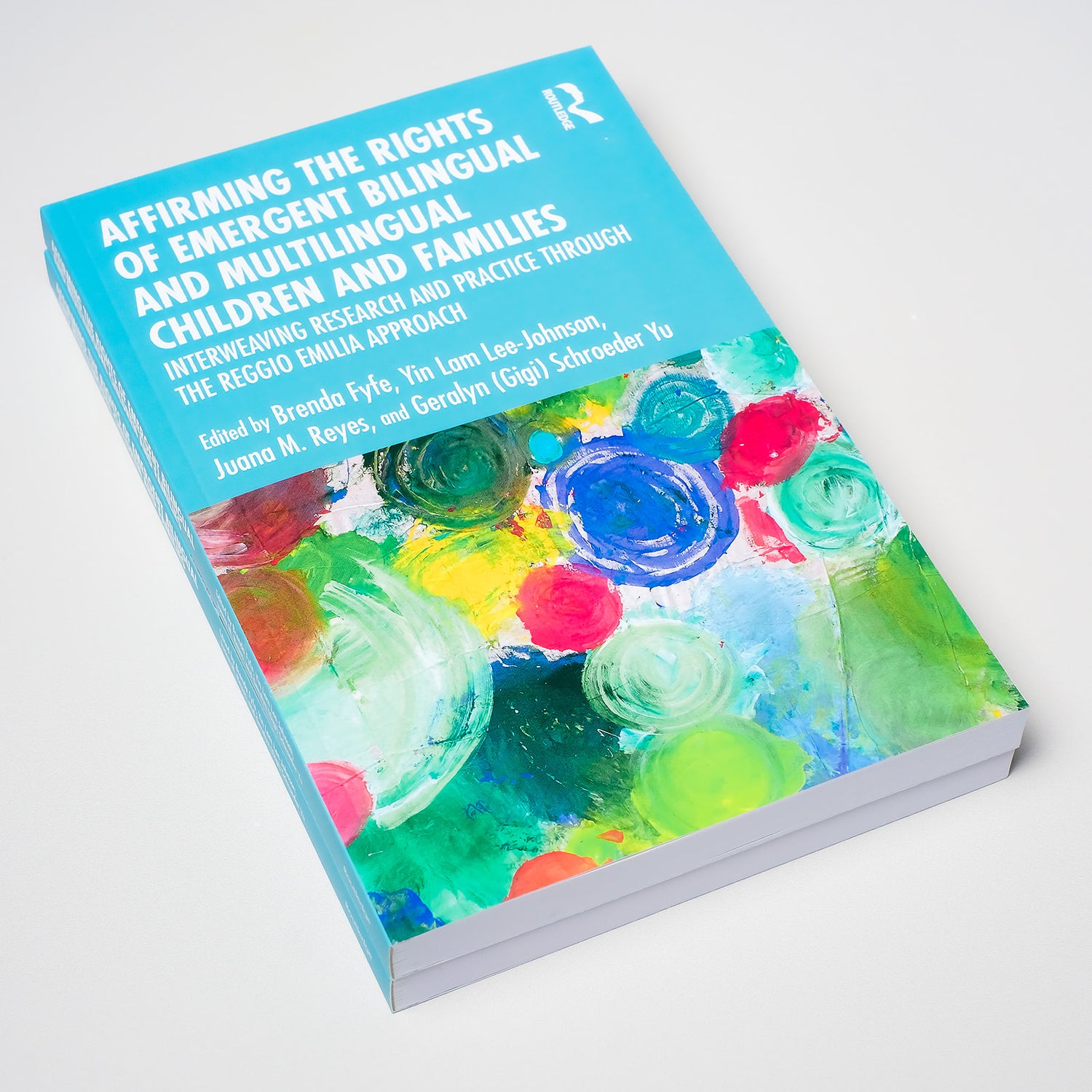
Reggio Inspired Publications
Shop here for essays and reflections by authors who draw inspiration from Reggio...
-
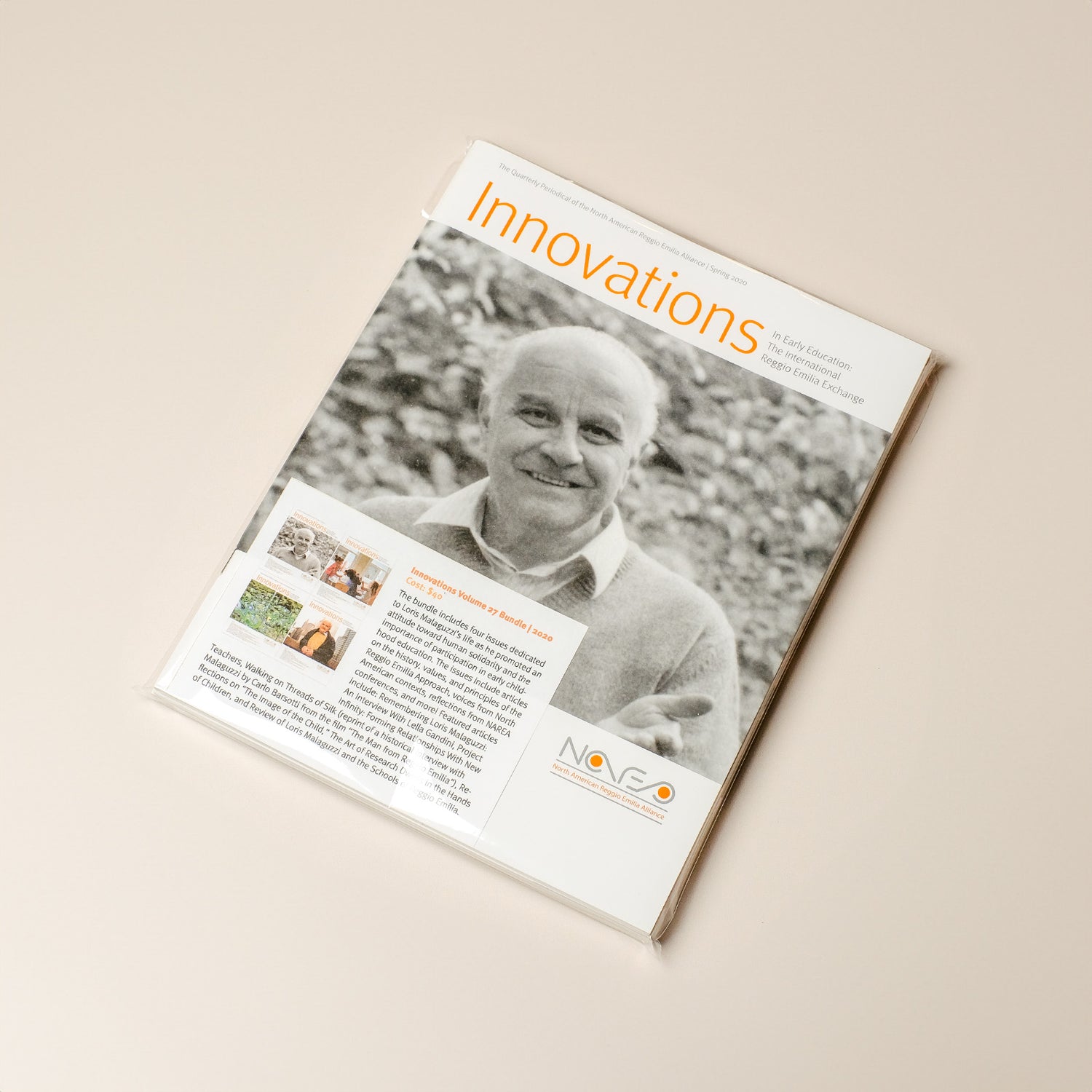
Innovations
The mission of Innovations is to provide an ongoing professional development resource that respectfully...
-
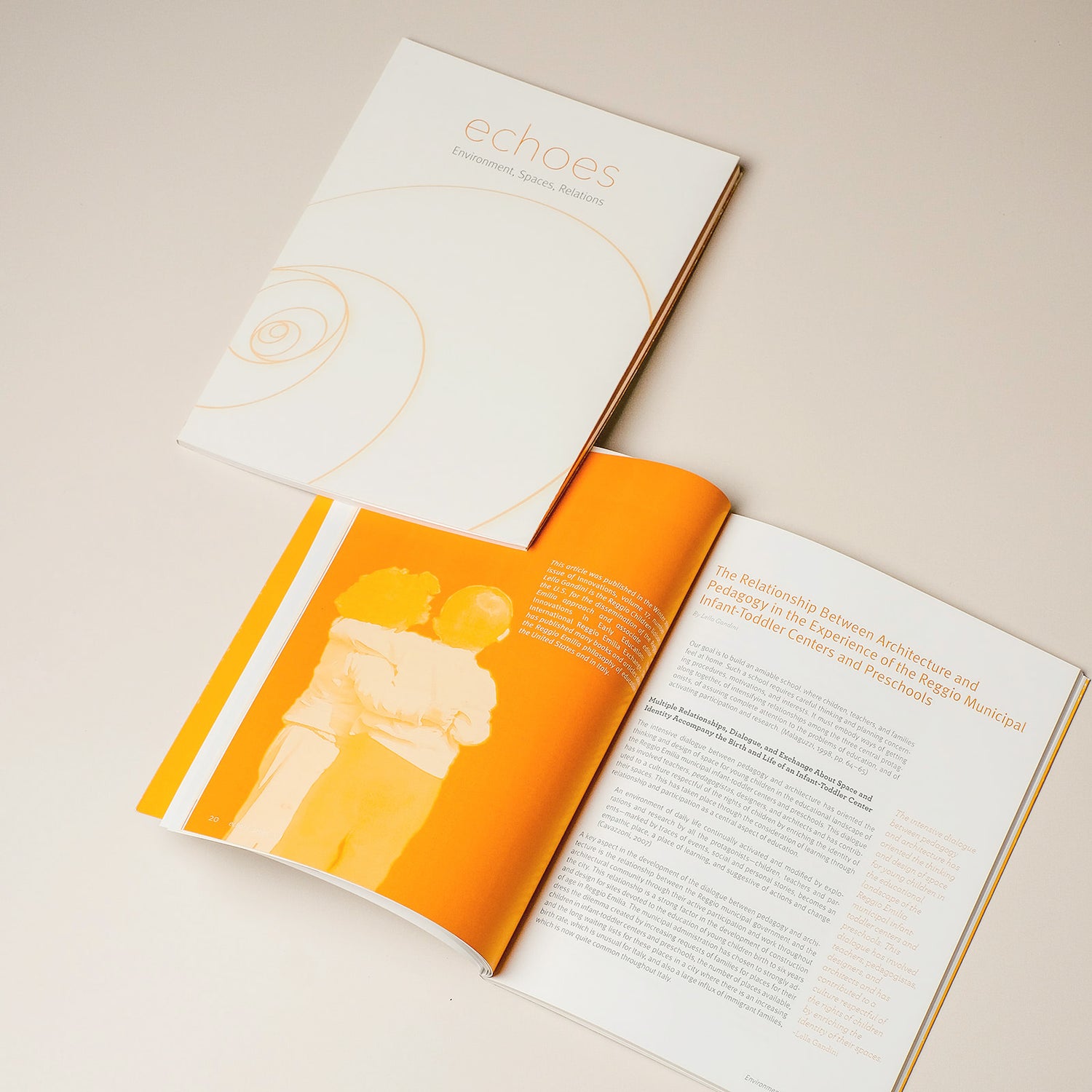
NAREA Resources
Shop here for publications and merchandise produced by NAREA to complement North America's...











